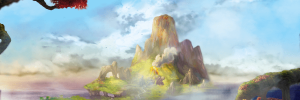Edge is a source of many interesting ideas derived from science that can be used in designing serious games. But, according to the website, serious games can also help to embrace scientific principles in real life situations.
For example, Carlo Rovelli in his text The Uselessness of Certainty wrote that embracing uncertainty is an essential part of most games.
Since you don’t know what will happen, you have to be open to what may happen.
In Truth is just a model, Neil Gershenfeld explains that A game is a model of a certain aspect of reality. We can learn from the game but is not “the truth”.
According to Michael Shermer‘s Think Bottom Up, Not Top Down it is important to think “bottom up” and not only “top down”.
In many games the outcome emerges from various bottom up actions, and attempts to control other players often fail.
Lastly, Roger Schank in Experimentation points out that we can look at each game as a specific social experiment. And we can learn from it. In a more structured form (appropriate participants samples, randomization, control and treatment groups) we can use them widely in psychological, social and economic empirical research. As policy exercises, games can test the possible effects of new policies and strategies.
Finally, a failure in games is much easier to accept than failure in a real life situation. Therefore it can encourage participants to take risks and try new things. Hence, games greatly improve innovation and learning.
Edge is an online informal gathering of intellectuals. It brings together scientists and other thinkers in mission to create a place for “cutting edge ideas“.





